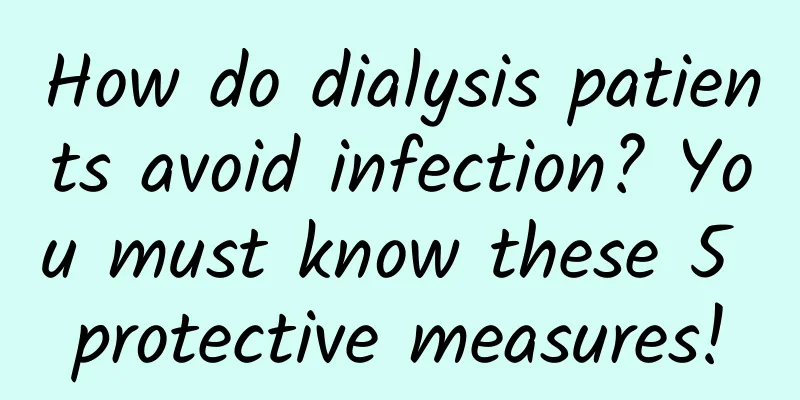How to treat gynecological HPV virus? Tell you the effective method

|
After women are infected with the HPV virus, they will develop a variety of gynecological diseases. This virus can infect the vulva, vagina, cervix and other parts of the body, causing women to develop serious diseases such as vaginal cancer and cervical cancer. So how should this viral infection in women be treated? 1. Low-risk infection mainly causes various genital warts, such as genital warts. For small lesions, freezing, laser, or applying imiquimod cream, trichloroacetic acid solution, podophyllotoxin ointment, etc. to the lesions can be used. Among them, imiquimod cream is an immunomodulator that can activate cellular immunity and indirectly kill viruses. It is currently a treatment method that is highly recommended throughout the world. If the lesions of genital warts are relatively large, drug treatment alone will not be effective. Generally, surgical removal is performed first (with an electric knife or a cold knife), and then the remaining lesions can be further removed with drugs. 2. High-risk viruses have oncogenomes E6 and E7, which may integrate into human cells and cause cancer (of course, this only happens in a small number of infected people). After discovering high-risk HPV infection, it is necessary to use TCT, colposcopy, biopsy and other means to confirm whether lesions (various precancerous lesions or cancer) have occurred in human tissue. In the field of obstetrics and gynecology, the vulva, vagina, and cervix may be infected with HPV and develop precancerous lesions, especially the cervix. 3. If CIN1 is found after tissue biopsy, physical therapy such as laser and microwave can be used; if the lesion is further upgraded to CIN2, physical therapy alone is not enough and loop electrosurgical excision procedure (LEEP surgery, also known as LEEP knife) is needed; if the lesion progresses to CIN3, cervical conization is needed to determine whether there is a more serious lesion. Cancers of the vulva and vagina are less common than those of the cervix and are usually treated with surgical removal. 4. In the past, many doctors would use interferon, traditional Chinese medicine, etc. to treat HPV infection. In the latest treatment guidelines of countries around the world, interferon is no longer a recommended drug because it has many side effects and insufficient data on its clinical effectiveness. As for traditional Chinese medicine, truly convincing experimental data is even more lacking. There are still some drugs on the market that claim to “quickly cure HPV infection”, but they are not credible! |
<<: What causes back pain during pregnancy?
Recommend
How to cure itching, swelling and pain at the vaginal opening?
The incidence of vulvar itching, swelling and pai...
Finger rubber band game
The novel coronavirus has disrupted our daily lif...
Can I eat millet porridge during menstruation?
Millet is actually rich in a lot of vitamins. In ...
What causes a biochemical pregnancy?
What causes a biochemical pregnancy? Biochemical ...
What are the effects of drinking alcohol during menstruation on the body
The benefits of pure grain wine to the human body...
Academician Zhong Nanshan: During the epidemic, it is very important to protect your immunity!
Reviewer of this article: Chen Haixu, Deputy Dire...
Breast pain during menstrual period?
Most women will experience some symptoms when the...
Will uterine fibroids cause breast pain?
Uterine fibroids are a common gynecological disea...
Will I have miscarriage if I am more than one month pregnant?
When you are one month pregnant, it is still the ...
Can sighing often lead to "poisoning"?
Source: Youlai Healthy Life...
Why can wormwood smoke out leucorrhea
Gynecological inflammatory diseases are very comm...
How to make celery apple juice? Drink apple juice after eating pasta?
Apple juice is an inexpensive drink that improves...
How to regulate amenorrhea
In daily life, the occurrence of amenorrhea is qu...
What are the common gynecological knowledge? Gynecologists tell you!
For adult women, for their own health, they must ...









